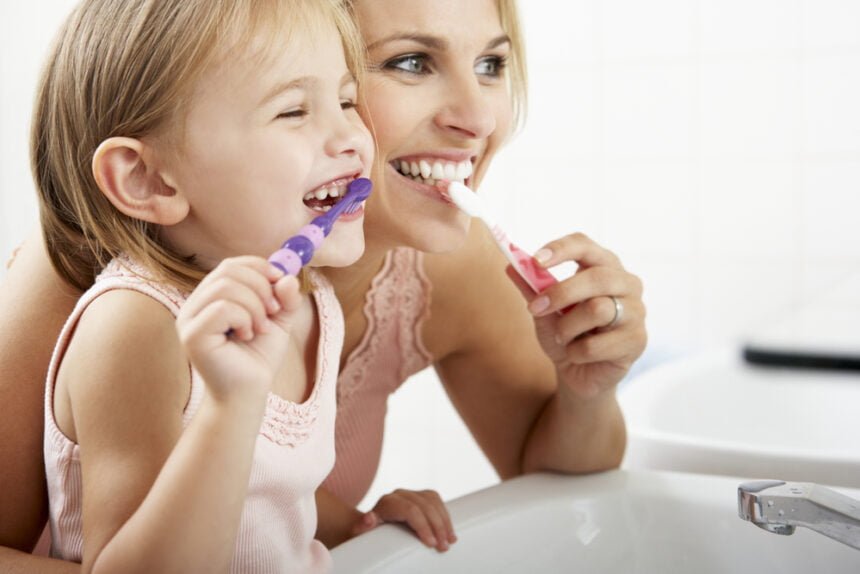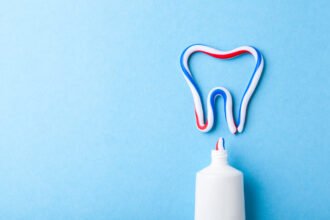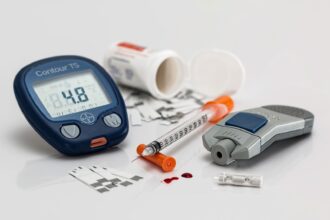Taking care of one’s teeth and gums is crucial to one’s general health and appearance. I asked my Syosset family dentist, who informed me that brushing your teeth twice a day is an essential part of good oral hygiene. People often wonder how often they ought to cleanse their teeth.
This question is subject to a number of variables, such as dental advice, professional opinion, and personal preferences. To help you develop a sustainable oral hygiene regimen, I’ll discuss the question of how often you should brush your teeth, touching on general principles, expert advice, and other relevant considerations.
General Dental Recommendations
Dentists and orthodontists are in agreement that you should brush your teeth at least twice daily. This entails two daily brushings, once upon rising and one just before retiring. Plaque may cause cavities and bad breath, so it’s important to brush twice a day to get rid of it and protect your teeth.
- Sessions of just two minutes: Spending enough time cleaning your teeth is crucial. The average dentist advises patients to brush for two minutes each time. This time frame is ideal for removing food debris, plaque, and germs from all tooth surfaces.
- Use a toothbrush with gentle bristles: Choose a toothbrush with soft bristles since they are easier on your gums and teeth. Brushing too vigorously or with a hard-bristled brush may wear away at your gums and enamel.
- To effectively prevent cavities, dentists suggest using fluoride toothpaste. Fluoride helps prevent tooth decay by strengthening the tooth enamel. Try to choose one that has been approved by the American Dental Association (ADA).
- Using the right method while cleaning your teeth is essential. Make soft, circular movements with the toothbrush while holding it at a 45-degree angle to the gums. Make sure you get the chewing, biting, and biting surfaces of your teeth every time you brush.
- Remember to replace your toothbrush every three months: Over time, the bristles on your toothbrush will wear down and lose their ability to thoroughly clean your teeth. Dentists recommend switching to a new toothbrush every three to four months, or whenever the bristles start to tear.
Factors to Consider
Several things should be considered when deciding how often you ought to cleanse your teeth every day. Considering these characteristics might help you develop a personalized oral hygiene practice. Some crucial considerations include:
- The frequency with which you brush is also heavily influenced by the state of your dental health at the moment. People with gum disease or a high risk of tooth decay may be advised by their dentist to clean their teeth more often.
- How you eat: The condition of your teeth may be affected by the food you eat. It’s important to clean your teeth more often after consuming sugary or acidic meals and drinks to eliminate the possible detrimental effects on tooth enamel.
- Tobacco usage and other poor lifestyle choices have been linked to an increased risk of oral health issues. People who engage in such practices may find that they need to brush their teeth more regularly to mitigate the negative consequences of their habits.
- The production of saliva: Saliva helps keep teeth and gums healthy by diluting acids and flushing away dietary debris. Some people with dry mouth or decreased saliva production may need to increase the frequency with which they wash their teeth.
- If you want specific advice tailored to your dental health requirements, your dentist is the one to see. Your dentist or dental hygienist may advise you on how often you should brush your teeth during regular checkups and cleanings.
Morning and Night Routine
Establishing a consistent morning and night routine for brushing your teeth is crucial for maintaining good oral hygiene. Here’s a breakdown of an ideal morning and night routine:
Morning Routine:
- To begin, you should gargle some water to wash away any remaining food and refresh your breath.
- Put a little bit of fluoride toothpaste, about the size of a pea, on your toothbrush.
- Use gentle, circular movements while holding the toothbrush at a 45-degree angle to the gums.
- The outside, interior, and chewing surfaces of your teeth should all be brushed. You should also examine your gums.
- Brush your teeth for at least two minutes, paying special attention to the back of each tooth.
- Remember to gently clean your tongue to eliminate bad breath-causing germs.
- Remove any remaining toothpaste by rinsing your mouth with water.
Night Routine:
- To properly clean your teeth, repeat steps 1–4 from your morning regimen.
- Plaque and bacteria may build up during the day, so it’s important to brush your teeth before bed to get rid of them.
- Brush your teeth for at least two minutes, giving special attention to the back of your teeth.
- Remove any remaining toothpaste by rinsing your mouth with water.
- Use an antibacterial mouthwash to further reduce your risk of developing plaque and gingivitis.
- If you want the fluoride in your toothpaste or mouthwash to continue working overnight, don’t eat or drink anything (except water) after you brush your teeth.
Final Words
In conclusion, maintaining a consistent brushing routine is essential for optimal oral health. While the general recommendation is to brush your teeth at least twice a day, in the morning and before bedtime, it’s important to consider individual factors such as oral health condition, dietary habits, and lifestyle choices.
Brushing your teeth for a minimum of two minutes per session using a soft-bristled toothbrush and fluoride toothpaste is crucial. Additionally, replacing your toothbrush regularly and incorporating other oral hygiene practices like flossing, tongue cleaning, and regular dental check-ups further promote a healthy mouth.
Remember to consult with your dentist for personalized advice tailored to your specific oral health needs. By following recommended guidelines and maintaining a comprehensive oral care routine, you can ensure a healthy smile, prevent dental problems, and maintain fresh breath for years to come.









